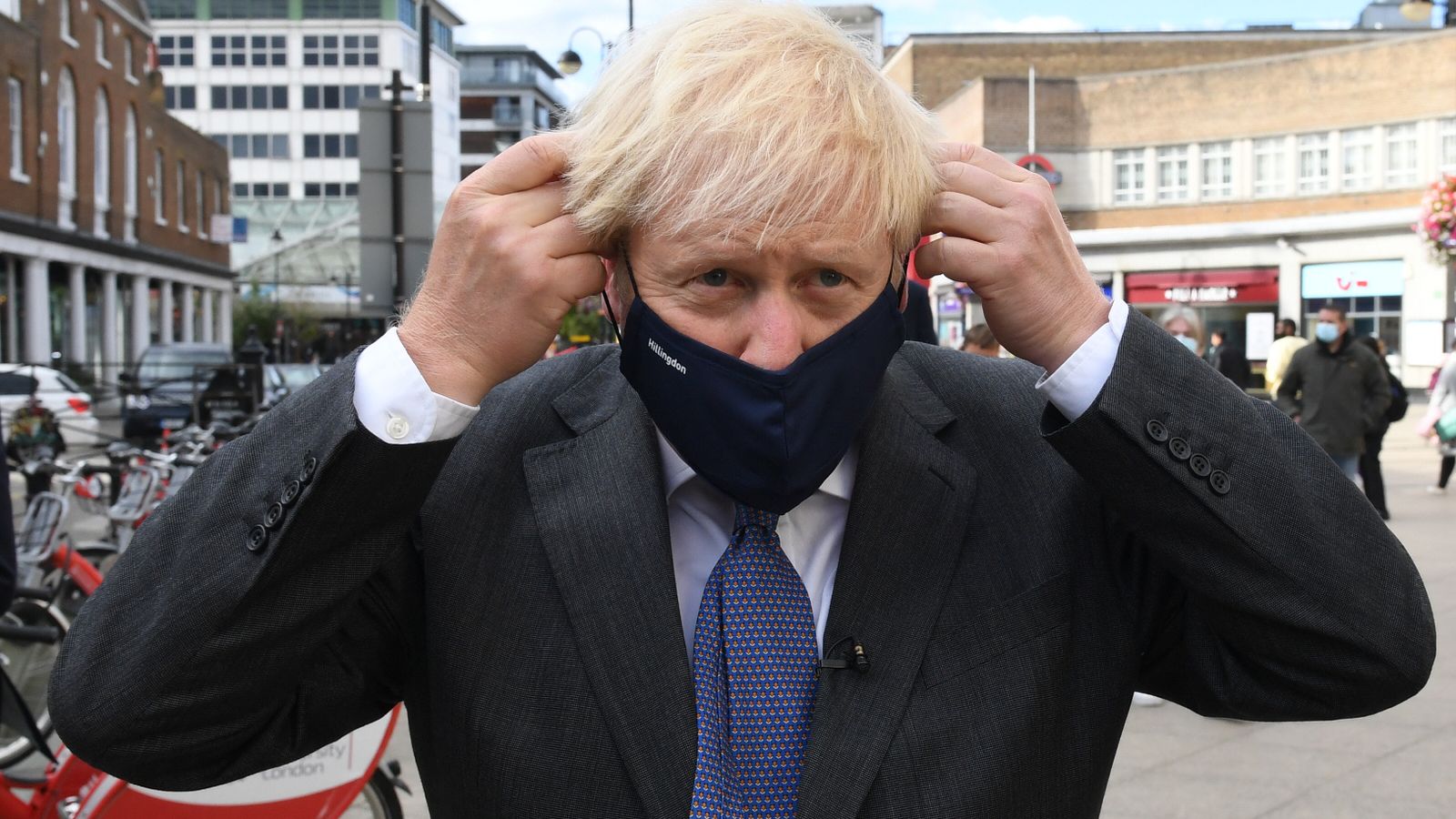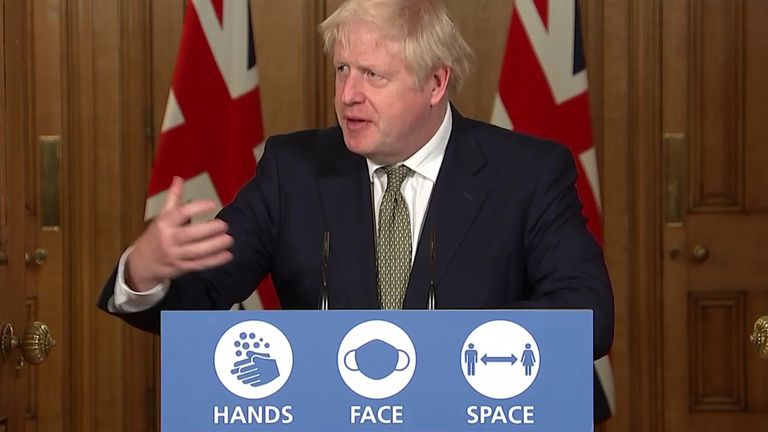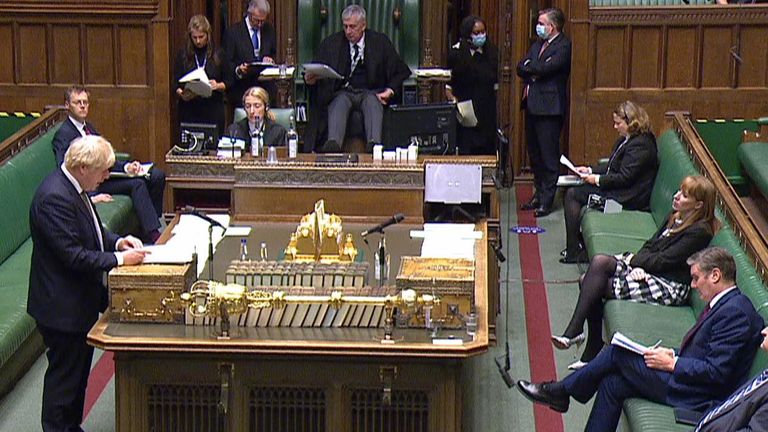Boris Johnson’s new coronavirus lockdown rules are being debated and voted on by MPs, with the prime minister facing a Tory backlash and potential rebellion.
Some Conservative MPs are against the measures on civil liberties grounds, while others claim restrictions such as the 10pm curfew for pubs and restaurants are counter-productive.
But unless Sir Keir Starmer orders Labour MPs to vote against the measures, in a series of votes following a four-hour debate, the prime minister is assured of victory even if some of his own MPs rebel.
Defending his new curbs at a Downing Street news conference, Mr Johnson said COVID cases had gone up four times in four weeks, more people were in hospital, and deaths were rising.
“These figures are flashing at us like dashboard warnings in a passenger jet and we must act now,” the prime minister said.
Mr Johnson also said the government could impose more restrictions if local politicians did not agree to new measures.
“If we can’t get agreement, then clearly it is the duty of national government to take the necessary action to protect the public and public health and we will,” the PM said.
But in a warning that government advisers want even tougher measures, England’s chief medical officer Professor Chris Whitty said even the strictest rules announced by the PM were not enough on their own.
“I am not confident – and nor is anybody confident – that the Tier Three proposals for the highest rates, if we did the absolute base case and nothing more, would be enough to get on top of it,” he said.
Later the government’s scientific advisers, SAGE, published documents revealing that a so-called “circuit-breaker” – national lockdown – was at the top of a short list of moves recommended to the government last month.
Other SAGE proposals included:
- Advice to work from home for all those who can;
- Banning all contact within the home with members of other households (except members of a support bubble);
- Closing all bars, restaurants, cafes, indoor gyms, and personal services such as hairdressers;
- All university and college teaching “to be online unless face-to-face teaching is absolutely essential”.
Ahead of the Commons debate, the prime minister is facing Tory anger, with the West Midlands mayor Andy Street claiming that the government has ignored the views of local leaders.
Mr Street said the stricter measures for Birmingham and the West Midlands was not something regional leaders supported, nor what he believed would be happening following conversations over recent days.
“The most important change between our current restrictions and the new ones announced today is the ban on households mixing in hospitality venues,” said Mr Street.
“This is something the latest local epidemiology does not support and I am disappointed that the government is pressing ahead with this despite the united view of local leaders.”
In Parliament, Sir Graham Brady, chairman of the influential backbench Tory 1922 Committee, questioned how Mr Johnson would prevent local restrictions becoming permanent.
Tory MP Philip Davies told Mr Johnson to “put his trust in the British people to act responsibly” instead of “a constant blizzard of arbitrary rules which will only serve to collapse the economy and destroy businesses and jobs”.
And Mark Pawsey said the 10pm curfew led to many people “leaving the pub to go to a shop to stock up with booze, often with their friends, to drink at home”.


